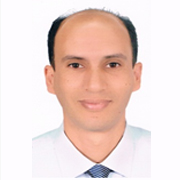Speakers

Sofiane Amara
Place of Birth : Algeria
Born : 1977
Position : Director of Research Unit Materials and Renewable Energies (URMER), Tlemcen University, Algeria
Field of study : Renewable energy, Buildings, climate change, Capture and storage CO2, Energy-Food-Water nexus
Prof. Dr. Sofiane Amara is Head of the Materials and Renewable Energy Research Unit at Tlemcen University Department of Physics, a cluster of excellence in renewable energy resources engineering. He received his Ph.D. from Luleå University of Technology, Sweden. He has held various positions at Thermals and Thermodynamics Division at Renewable Energy Research Unit in Saharan Middle, Adrar, Aïn Témouchent University Center and he has been Coordinator of the Energy Program for the Pan African University Institute of Water and Energy Sciences (including Climate Change) - PAUWES. Sofiane Amara has been researching predominantly in the field of thermal energy storage (Aquifer and cavern Thermal Energy Storage (groundwater)) and the utilization of fiber optics for energy transport for reducing energy consumption in buildings (2011). His most recent interests focus on solar water treatment (Legionella bacteria disinfection) (2016). He is the author of about 20 scientific articles in international journals and 40 presentations at international scientific conferences.
His research interests are primarily in the areas of systems to reduce energy consumption in buildings and it concerns one of the fundamental problems of the future of our society.
The focus of his interest is to apply renewable energy in an area with hot summers and cold winter, a climate like that in the north of Africa. In order to provide improved comfort in the buildings and also economic development in this area, the energy demand for heating and cooling is necessary and was calculated and analyzed in the ancient city of Tlemcen. To supply domestic hot water and space heating, water must be simultaneously available at two different temperature levels. Cold water temperature, close to that of the atmosphere, and hot water between 50 and 60°C. An interesting feature of the preparation of hot water is the small variation of requirements during the year, unlike that to heating. The preparation of hot water is one of the preferred applications of solar energy in the building for several reasons.
Finally his research interests for reducing energy consumption are focused in:
Thermal energy storage, Behavior of a domestic hot water storage tank, Phenomena that affect the thermal behavior of tank especially the coupling between the solar collector and storage tank, Concentrating solar collector, Using optical fibers for transporting energy, Another technology is introduced and developed for heating and cooling buildings in the desert involving an existing ancient irrigation system called Fouggara, Water treatment with concentrating solar energy use, Geothermal Systems.
-
Teaching assistant at Tlemcen University, Physics Department (Energy conversions), Economic sciences Department, Medical sciences Department (Biophysics) (Informatics), (2003 – 2006)
-
Researcher, Thermals and Thermodynamics Division at Renewable Energy Research Unit in Saharan Middle, Adrar (2006 –2009)
-
Senior Lecturer, Institut des Sciences et de la Technologie, Centre Universitaire d’Ain Temouchent (2009 –2014)
-
Senior Lecturer, Faculté des Sciences – Département de Physique, Université Abou Bekr Belkaid – Tlemcen (2015 –2015)
-
Coordinator for the Energy Program at Pan African University Institute for Water and Energy Sciences (Incl. Climate Change) – PAUWES and Deutsche Gesellschaft Fuer Internationale Zusammenarbeit (GIZ) gmbh (2015 –2016)
-
Senior Lecturer, Faculté des Sciences – Département de Physique, Université Abou Bekr Belkaid – Tlemcen (2016 –2018)
-
Professor, Faculté des Sciences – Département de Physique, Université Abou Bekr Belkaid – Tlemcen (Since 2018)
-
Director of Materials and Renewable Energy Research Unit (URMER), Tlemcen University (Since 2017)



